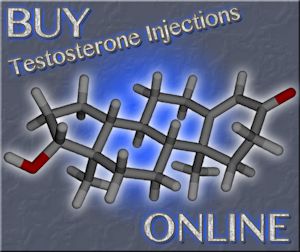Video Link: https://vimeo.com/293540113
Video Download: Click Here To Download Video
Video Stream: Click Here To Stream Video
New Study Finds That Testosterone Does Not Increase Cardiovascular Risk
For a long time, men with predispositions to cardiovascular complications have been warned that Testosterone Therapy may increase the risk of some dangerous heart conditions.
In addition to this, many men that undergo heart  failure or other high-risk cardiovascular complications are often put on drugs that inhibit the ability to produce Testosterone, to protect the patient.
failure or other high-risk cardiovascular complications are often put on drugs that inhibit the ability to produce Testosterone, to protect the patient.
New research points out that, although this advice was intended in the best interest of the patient, Testosterone may not raise cardiovascular risk in vulnerable patients.
Other recent studies have shown that men with higher Testosterone Levels naturally have stronger hearts, but it was still believed that Testosterone could be a hindrance when issues with the cardiovascular system arise.
No Link Established Between Heart Attacks and Testosterone
A recent study analyzed the data of twenty-four thousand male Medicaid Patients, and could not find a link between their use of Bio-Identical Testosterone and the incidence of heart attack among the patients.
Medicaid and Medicare are valuable tools for medical analysis, because such a large number of Americans use the same plan, and the government can analyze health records in a very uniform fashion.
Many Used to Hypothesize that Testosterone Could Be Dangerous For Patients with Unhealthy Hearts
The conventional wisdom regarding Testosterone and heart attacks appears to have been the opposite of the truth. Among the patients that were analyzed, Testosterone Therapy actually seems to have reduced the risk of heart attack by almost one-third among the men who were most at risk.
Hormone Replacement is a Growing Medical Field
Hormone Therapy is a full-fledged pharmaceutical industry these days, and numerous pharmaceutical companies manufacture and distribute hormones such as Bio-Identical HGH, Testosterone Therapy, and HCG, and they have spent countless dollars advertising their products and leading the public to become  more aware of the potential benefits of Testosterone Hormone Restoration.
more aware of the potential benefits of Testosterone Hormone Restoration.
Many in the past have feared that these measures would cause men to turn to Testosterone without a need, but, study after study appears to show that Testosterone has real and significant benefits, and many of the potential health risks associated with therapy appear to be overestimated.
Testosterone Increasingly Used by Men to Increase Health and Quality of Life
More and more patients and even athletes are turning to Hormone Replacement with Testosterone not as a means of bodybuilding or performance enhancement, but as a means to treat a real and underlying health deficiency.
In a recent book, evidence was presented that in 2007, Alex Rodriguez was actually prescribed Testosterone Replacement under the pretense of Testosterone Deficiency, and was prescribed the medication legally (although not by the rules of Major League baseball).
As Testosterone receives more thorough study, and more respect as a legitimate medical treatment, previous studies which purported the potential dangers of the use of Testosterone are being disproven as methods become more exact and our knowledge about how Testosterone interacts with human physiology become more sophisticated.
Flawed Testosterone Studies
On the other hand, modern studies that say that Testosterone is terrible are sometimes erroneous. In the year 2013, for example, research was published in the Journal of the American Medical Association, claiming that military veterans that utilized Testosterone Restoration had a thirty percent increase in stroke, heart attack, and general mortality if they had issues with heart disease before therapy.
 This study has been lambasted by a wide variety of medical groups, for a variety of reasons.
This study has been lambasted by a wide variety of medical groups, for a variety of reasons.
One of the reasons was that one hundred of the over 1100 patients analyzed were women, which would lead the end result to be significantly flawed. Also, there were significant statistical errors which vastly skewed the results of the study. In fact, around the world, more than twenty-five medical organizations have banded together to recommend that the AMA completely disregard the article for its flaws.
Testosterone Statistically Relevant in the Reduction of Mortality Risk in At-Risk Patients
Regarding the new study, 6355 patients that received Testosterone Therapy of any kind were evaluated about health outcomes in comparison with 19,065 patients that never used Testosterone.
The patients all received this therapy between the years of 1997 and 2005. What researchers found was that patients that received Testosterone Treatment were at no higher risk than their control peers for experiencing a heart attack.
Beyond this broad comparison, researchers also created groups of patients based off of heart attack risk.
In the quartile that had the highest overall chance of heart attack, it was found that these patients actually had a thirty percent lower risk of heart attack than their similarly at-risk peers.
Testosterone Study Complications
Of course, some issues make the results of this study less clear. For one, no consideration was placed on what other pharmaceutical treatments that the patients were taking, only whether they were utilizing Injectable Testosterone. Men that take Testosterone may be more likely to be proactive with their health in other regards, including their willingness to see a doctor or take heart medications.
Also, this study only included patients that had utilized Injectable Testosterone, excluding all other forms of Testosterone Therapy. This means that the study did  not include any patients that took Testosterone Gels, Patches, or Creams, for example.
not include any patients that took Testosterone Gels, Patches, or Creams, for example.
In spite of these issues, the researchers are confident that their study is valuable, and provides a more nuanced perspective about how the heart responds to Testosterone.
The heart is a muscle, just like any other, and, for men, it appears that healthy Testosterone Levels benefit heart health just as much as it preserves the health and function of the skeletal muscles.
Low-T is Real and Could be Affecting Your Life
Testosterone Deficiency is a real medical condition that has a wide variety of risks. It has been long used as a method to treat sexual dysfunction and restore sexual health, but there is increasing evidence that Testosterone Replacement is a powerful means to safeguard health and wellness.
Among other things, there is evidence that Testosterone can improve health outcomes like diabetes, obesity, loss of muscle mass, and osteoporosis in older men suffering from the effects of Andropause.
Reference
Contact Us Today For A Free Consultation

- Adverse Effects of Testosterone Therapy in Adult Men: A Systematic Review and Meta-Analysis [Last Updated On: July 2nd, 2024] [Originally Added On: June 4th, 2010]
- Low Testosterone Levels, Foods That Increase Testosterone Levels wwwSelf-Improvement-Bible.com [Last Updated On: November 12th, 2023] [Originally Added On: May 30th, 2011]
- Low Testosterone in Men: The Next Big Thing in Medicine! - Abraham Morgentaler, MD [Last Updated On: May 7th, 2023] [Originally Added On: June 3rd, 2011]
- How To Determine Testosterone Levels By Looking At Your Ring Finger [Last Updated On: December 7th, 2017] [Originally Added On: June 30th, 2011]
- Prolab Horny Goat Weed Testosterone Booster Supplement Review [Last Updated On: November 23rd, 2023] [Originally Added On: July 19th, 2011]
- The Healthy Skeptic: Products make testosterone claims [Last Updated On: August 13th, 2024] [Originally Added On: September 11th, 2011]
- How To Naturally Increase Testosterone [Last Updated On: November 21st, 2023] [Originally Added On: September 28th, 2011]
- Testosterone Production - Video [Last Updated On: November 25th, 2024] [Originally Added On: November 20th, 2011]
- Testosterone makes us less cooperative and more egocentric, study finds [Last Updated On: January 23rd, 2018] [Originally Added On: February 1st, 2012]
- Testosterone makes us less cooperative and more egocentric [Last Updated On: January 24th, 2018] [Originally Added On: February 1st, 2012]
- Too much testosterone makes for bad decisions, tests show [Last Updated On: May 4th, 2015] [Originally Added On: February 1st, 2012]
- Today in Research: Testosterone's Negative Effects; Diet Soda Death [Last Updated On: January 2nd, 2018] [Originally Added On: February 2nd, 2012]
- Testosterone drives ego, trips cooperation [Last Updated On: December 2nd, 2017] [Originally Added On: February 4th, 2012]
- FDA approves BioSante/Teva's testosterone gel [Last Updated On: May 4th, 2015] [Originally Added On: February 15th, 2012]
- 'Manly' Fingers Make For Strong Jawline in Young Boys [Last Updated On: December 1st, 2017] [Originally Added On: February 15th, 2012]
- Teva, BioSante Win U.S. Approval for Testosterone Therapy [Last Updated On: December 10th, 2017] [Originally Added On: February 15th, 2012]
- BioSante Gains on Approval of Testosterone Gel: Chicago Mover [Last Updated On: January 8th, 2018] [Originally Added On: February 16th, 2012]
- BioSante soars following drug approval from FDA [Last Updated On: December 26th, 2017] [Originally Added On: February 16th, 2012]
- Antibodies, Not Hard Bodies: The Real Reason Women Drool Over Brad Pitt [Last Updated On: December 24th, 2017] [Originally Added On: February 21st, 2012]
- Almark Publishing Releases Book From Mark Rosenberg, M.D. Revealing Natural Discoveries Associated With Low ... [Last Updated On: May 4th, 2015] [Originally Added On: February 28th, 2012]
- Testosterone Replacement Clinic Comes to Kansas City with Potential to Help Thousands of Men [Last Updated On: May 4th, 2015] [Originally Added On: March 1st, 2012]
- Study examines the relative roles of testosterone and its metabolite, dihydrotestosterone in men [Last Updated On: December 2nd, 2017] [Originally Added On: March 7th, 2012]
- The Role of 5{alpha}-Reductase Inhibition in Men Receiving Testosterone Replacement Therapy [Editorial] [Last Updated On: December 21st, 2017] [Originally Added On: March 7th, 2012]
- Effect of Testosterone Supplementation With and Without a Dual 5{alpha}-Reductase Inhibitor on Fat-Free Mass in Men ... [Last Updated On: January 3rd, 2018] [Originally Added On: March 7th, 2012]
- Why We Like Men Who Can Keep Their Cool [Last Updated On: December 30th, 2017] [Originally Added On: March 7th, 2012]
- Testosterone And Heart Health [Last Updated On: May 4th, 2015] [Originally Added On: March 10th, 2012]
- Your Life on Testosterone: Overly Sure of Yourself, Unwilling to Listen [Last Updated On: November 25th, 2018] [Originally Added On: March 15th, 2012]
- Mayo Clinic-TGen study role testosterone may play in triple negative breast cancer [Last Updated On: December 8th, 2017] [Originally Added On: March 23rd, 2012]
- A dose of testosterone might not cure what ails you [Last Updated On: January 23rd, 2018] [Originally Added On: March 25th, 2012]
- Green tea could aid athletes hide testosterone doping [Last Updated On: December 16th, 2017] [Originally Added On: March 25th, 2012]
- TGen Study Role Testosterone May Play in Triple Negative Breast Cancer [Last Updated On: December 6th, 2017] [Originally Added On: March 26th, 2012]
- Testosterone low, but responsive to competition, in Amazonian tribe [Last Updated On: January 23rd, 2018] [Originally Added On: March 28th, 2012]
- Competition-linked bursts of testosterone are fundamental aspect of human biology, study of Amazonian tribe suggests [Last Updated On: December 25th, 2017] [Originally Added On: March 28th, 2012]
- Playing football boosts testosterone levels by 30 percent! [Last Updated On: February 4th, 2024] [Originally Added On: March 28th, 2012]
- Testosterone low, but responsive to competition, in Amazonian tribe -- with slideshow [Last Updated On: December 9th, 2017] [Originally Added On: March 28th, 2012]
- The benefits of testosterone pellet therapy [Last Updated On: January 24th, 2018] [Originally Added On: March 29th, 2012]
- Low testosterone levels cause health woes [Last Updated On: November 25th, 2018] [Originally Added On: March 30th, 2012]
- Heart Failure Patients Getting Relief from Testosterone Supplements [Last Updated On: May 4th, 2015] [Originally Added On: April 21st, 2012]
- Study Finds Fatherhood Suppresses Testosterone [Last Updated On: May 4th, 2015] [Originally Added On: May 3rd, 2012]
- Low testosterone levels could raise diabetes risk for men [Last Updated On: January 26th, 2018] [Originally Added On: May 5th, 2012]
- Why low testosterone may increase your risk of diabetes [Last Updated On: November 25th, 2024] [Originally Added On: May 5th, 2012]
- Diabetes link to low testosterone [Last Updated On: November 25th, 2024] [Originally Added On: May 5th, 2012]
- Testosterone Linked to Weight Loss in Obese Men [Last Updated On: January 2nd, 2018] [Originally Added On: May 11th, 2012]
- Testosterone may help weight loss [Last Updated On: November 25th, 2024] [Originally Added On: May 11th, 2012]
- Testosterone-fuelled infantile males might be a product of Mom's behaviour [Last Updated On: December 25th, 2017] [Originally Added On: May 11th, 2012]
- Testosterone-fueled infantile males might be a product of Mom's behavior [Last Updated On: January 6th, 2018] [Originally Added On: May 11th, 2012]
- Testosterone supplements may help obese men lose weight [Last Updated On: January 5th, 2018] [Originally Added On: May 11th, 2012]
- Testosterone supplements 'can help men lose their middle-aged spread' [Last Updated On: November 25th, 2024] [Originally Added On: May 12th, 2012]
- Some doctors question safety of testosterone replacement therapy [Last Updated On: January 20th, 2018] [Originally Added On: May 15th, 2012]
- Health Canada Approves New Testosterone Topical Solution for Men [Last Updated On: May 4th, 2015] [Originally Added On: May 15th, 2012]
- Environment trumps genes in testosterone levels, study finds [Last Updated On: May 4th, 2015] [Originally Added On: May 15th, 2012]
- Global Testosterone Replacement Therapy (TRT) Industry [Last Updated On: May 4th, 2015] [Originally Added On: May 21st, 2012]
- Testosterone Fuels Boom, Swindler Sows Panic: Top Business Books [Last Updated On: January 13th, 2018] [Originally Added On: June 2nd, 2012]
- Increase in testosterone drug use [Last Updated On: April 12th, 2018] [Originally Added On: June 4th, 2012]
- Testosterone Promotes Agression Automatically [Last Updated On: January 29th, 2018] [Originally Added On: June 9th, 2012]
- Testosterone shown to help sexually frustrated women [Last Updated On: January 27th, 2018] [Originally Added On: June 9th, 2012]
- Research and Markets: Testosterone Replacement Therapy (TRT) - Global Strategic Business Report [Last Updated On: December 23rd, 2017] [Originally Added On: June 12th, 2012]
- Proposed testosterone testing of some female olympians challenged by Stanford scientists [Last Updated On: January 30th, 2018] [Originally Added On: June 14th, 2012]
- Testosterone Makes Bosses Into Jerks, Says Paul Zak [Last Updated On: January 8th, 2018] [Originally Added On: June 14th, 2012]
- Testosterone Therapy: A Misguided Approach to Erectile Dysfunction (ED) [Last Updated On: May 4th, 2015] [Originally Added On: June 20th, 2012]
- New drugs, new ways to target androgens in prostate cancer therapy [Last Updated On: January 8th, 2018] [Originally Added On: June 20th, 2012]
- Long-term testosterone treatment for men results in reduced weight and waist size [Last Updated On: January 19th, 2018] [Originally Added On: June 23rd, 2012]
- Declining testosterone levels in men not part of normal aging, study finds [Last Updated On: December 27th, 2017] [Originally Added On: June 23rd, 2012]
- Low testosterone not normal part of aging [Last Updated On: December 22nd, 2017] [Originally Added On: June 25th, 2012]
- Testosterone Does Not Necessarily Wane With Age [Last Updated On: December 6th, 2017] [Originally Added On: June 25th, 2012]
- Overweight men can boost low testosterone levels by losing weight [Last Updated On: December 10th, 2017] [Originally Added On: June 25th, 2012]
- Testosterone-replacement therapy improves symptoms of metabolic syndrome [Last Updated On: January 14th, 2018] [Originally Added On: June 26th, 2012]
- Testosterone therapy takes off pounds [Last Updated On: December 11th, 2017] [Originally Added On: June 26th, 2012]
- Weight loss may boost men's testosterone [Last Updated On: May 4th, 2015] [Originally Added On: June 27th, 2012]
- Low Testosterone? Study finds age may not be to blame [Last Updated On: May 4th, 2015] [Originally Added On: July 1st, 2012]
- Do you have low testosterone? [Last Updated On: December 15th, 2017] [Originally Added On: July 8th, 2012]
- Wall Streeters Buying Testosterone for an Edge [Last Updated On: May 4th, 2015] [Originally Added On: July 12th, 2012]
- Beefy Wall Street Traders rub on testosterone [Last Updated On: February 20th, 2024] [Originally Added On: July 12th, 2012]
- Tale of two runners exposes flawed Olympic thinking [Last Updated On: December 23rd, 2024] [Originally Added On: July 19th, 2012]
- Genetic markers for testosterone and estrogen level regulation identified [Last Updated On: January 6th, 2018] [Originally Added On: July 20th, 2012]
- BUSM researchers identify genetic markers for testosterone, estrogen level regulation [Last Updated On: December 18th, 2017] [Originally Added On: July 20th, 2012]
- DRS. OZ AND ROIZEN: How to reap the benefits of normal testosterone levels [Last Updated On: December 23rd, 2024] [Originally Added On: July 21st, 2012]
- How Testosterone Drives History [Last Updated On: December 24th, 2024] [Originally Added On: July 22nd, 2012]
- Testosterone replacement is "fountain of youth" for men [Last Updated On: January 3rd, 2018] [Originally Added On: July 27th, 2012]
- Pill for low testosterone in men heads for phase II clinical trials [Last Updated On: December 31st, 2017] [Originally Added On: August 2nd, 2012]
Word Count: 1041





















